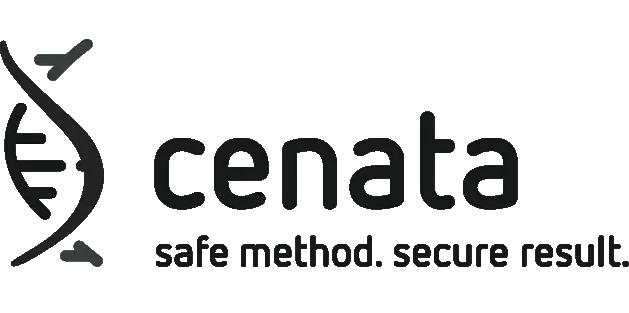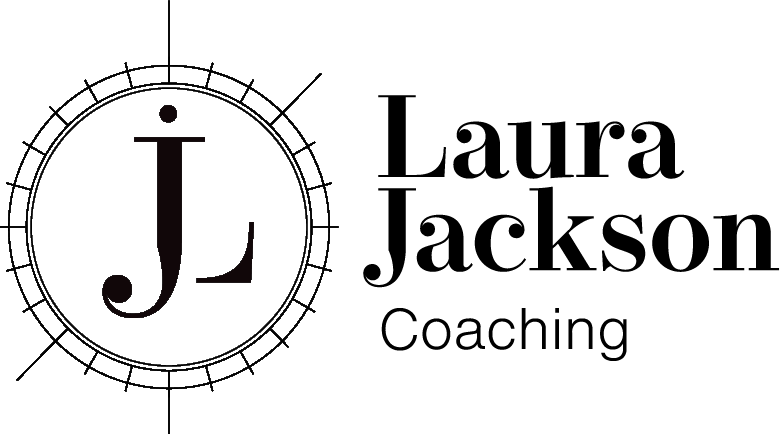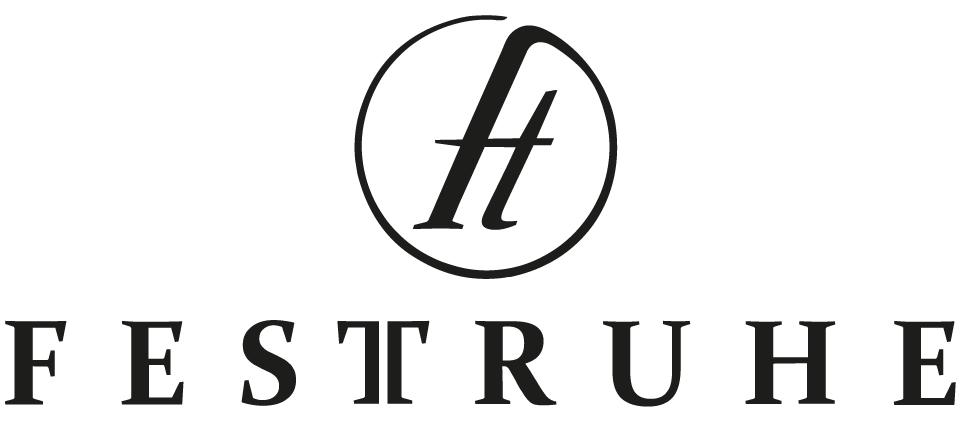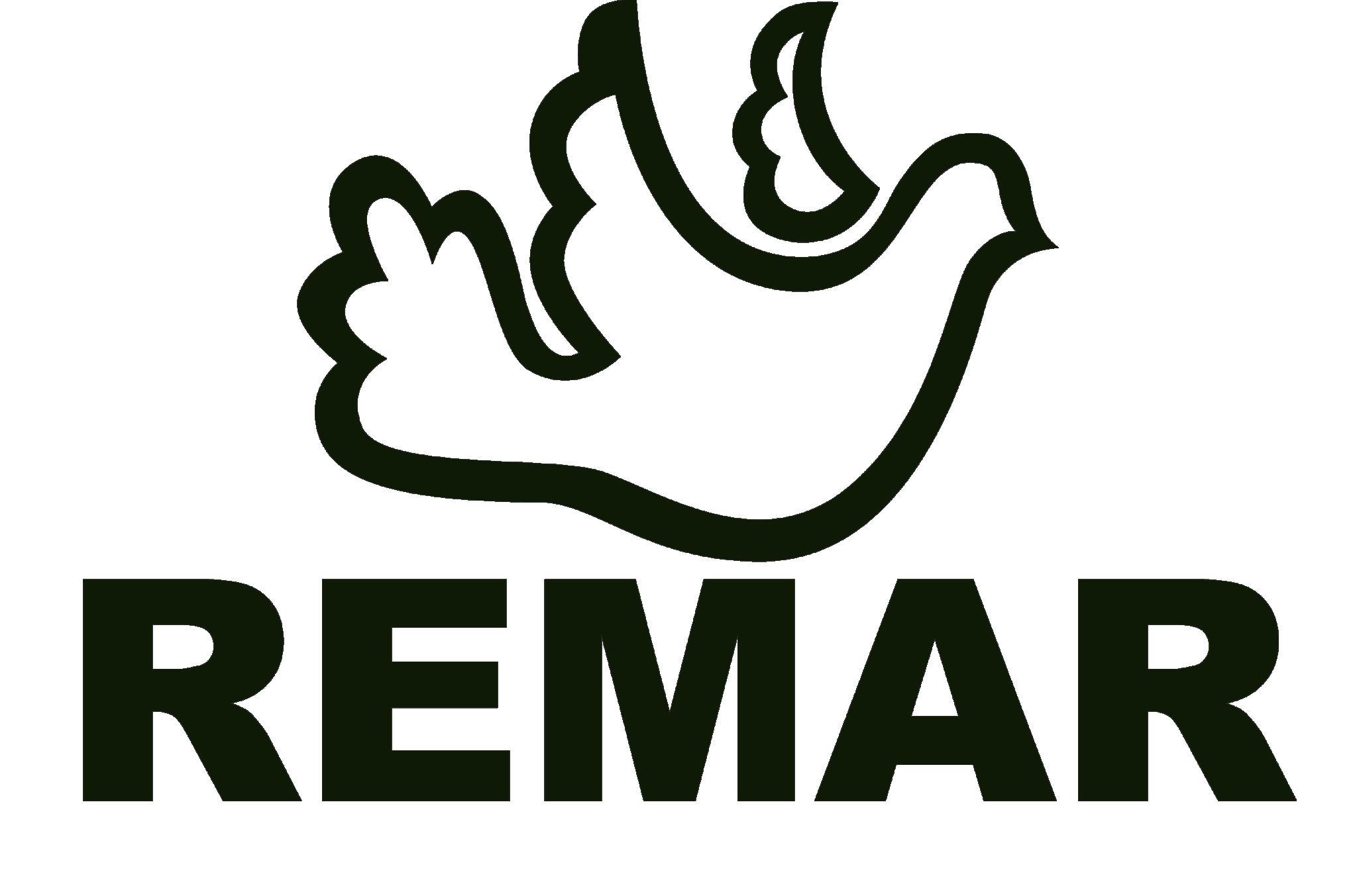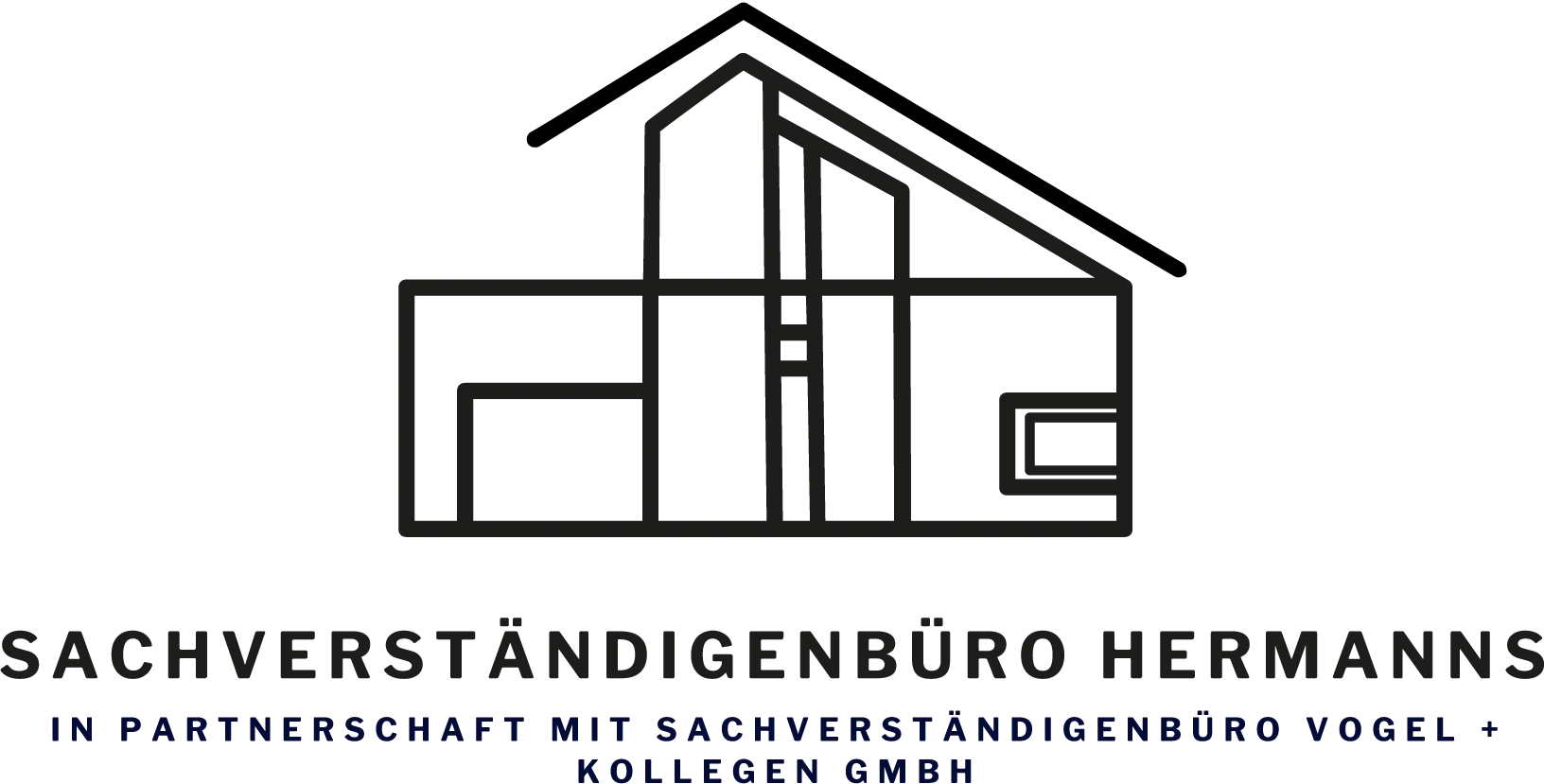SEO – Web design – Google Ads – Social media
Professional domain & hosting: your secure foundation online
Professional domain & hosting – maximum security, performance and personal service for your website.
Individual marketing solutions
Graphic design
We create modern designs that visually strengthen your brand, create trust and are remembered for a long time.
Website creation
We create modern, search engine optimized websites that convince, create trust and generate leads.
Online stores
We develop sales-boosting online stores that present your products in the best possible way and lead customers directly to a purchase.
Online marketing consulting
We analyze your marketing holistically, develop clear strategies and sustainably increase your online presence.
Accessibility
We check and optimize your website according to BFSG standards - for legal certainty, greater reach and better SEO.
Certification
We check your website according to over 100 SEO criteria and certify it for top performance and maximum visibility.


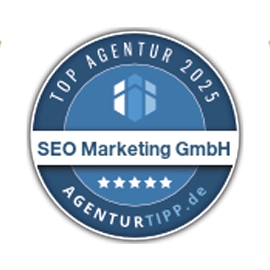


Why professional domain & hosting is crucial for your online success
Have you had enough of technical problems, downtimes or opaque hosting contracts? Your domain and web hosting are the technical backbone of your online presence. However, these essential building blocks are often neglected or outsourced to providers who do not offer a personal service and are difficult to contact in the event of problems.
This is exactly where we come in as your partner for professional domain & hosting. We offer a comprehensive solution from a single source so that you can concentrate fully on your core business – safe in the knowledge that your digital base is stable, fast and secure. Because your online accessibility is not a minor matter.






When technology becomes a brake on your business
Many entrepreneurs are annoyed by slow websites, email problems or sudden server outages. The cause is often an unsuitable hosting package, a lack of security updates or a poorly managed domain configuration. In addition, security gaps or complicated processes during a domain transfer can cost valuable time and nerves that you would be better off investing in your company.
As your agency, we understand these challenges. That’s why we not only offer individual modules, but also holistic support for your digital infrastructure. We ensure that the technology runs smoothly in the background so that you don’t have to worry about accessibility or data security.
Your digital infrastructure: from a single source, professionally managed
We take complete technical responsibility for your domain and web hosting. From domain registration and setting up your professional e-mail hosting to ongoing operation, monitoring and website maintenance – we take care of it all. This means you have a fixed, competent contact partner for all technical matters relating to your online presence.
Maximum accessibility & performance for your website
A slow or unavailable website scares away visitors and damages your Google ranking. We rely on modern server infrastructure in Germany and ensure high availability and fast hosting. This allows you to avoid downtime, improve the user experience and lay the technical foundation for your online success.
Security & data protection to the highest standards
We take care of regular backups, essential security updates and GDPR-compliant hosting. This means that your company data and customer information are protected in the best possible way and you can concentrate on your business with peace of mind while we have the technology under control.
One contact for all technical matters
Forget the hassle of dealing with different providers and hotlines. Whether you need to move your domain, set up new e-mail addresses or have technical questions about your website – with us you have a dedicated, German-speaking contact person for your managed hosting and website maintenance.
Analyze your website for free – more visibility now!
Have your website analyzed free of charge and discover optimization potential immediately. Get a quick SEO check with clear tips for better rankings, more visibility and more customers - free of charge, professionally and without obligation.
Our process: simple, transparent and reliable
We make it as easy as possible for you to switch or get started.

Consulting & needs analysis
We will discuss your requirements: Do you need a new domain, are you planning a domain transfer, what performance does your web hosting need? We will then recommend the optimal solution.

Professional installation or relocation
We take care of the complete technical implementation: domain registration or transfer, setting up web hosting and configuring your e-mail hosting. In the event of a move, we ensure a smooth transition.


Ongoing management & maintenance
We monitor the systems, install updates and create backups. We also take care of the technical maintenance of your online presence as part of website maintenance.

Personal support if required
If you have any questions or problems, your personal contact will be available to you quickly and competently – without being put on hold or using a ticket system.

Ready for a stable and worry-free digital foundation?
Leave the technical complexity of domain and hosting to us. Concentrate on what you do best – your business. A professionally managed infrastructure is the foundation for your digital success.
Request a free and non-binding hosting consultation now!
Frequently asked questions about domain & hosting
Why shouldn't I just take the cheapest hosting offer?
Cheap hosting often comes with disadvantages: slow loading times (bad for SEO & users), frequent outages, lack of security and poor to no support. Professional hosting may cost a little more, but it offers the reliability, speed and security that are essential for a serious business. It is an investment in your accessibility and reputation.
Can you transfer my existing domain to you?
Yes, of course. A domain transfer is a standard process that we routinely carry out for you. We take care of all the technical steps and ensure that your website and emails remain accessible during the transfer.
Is e-mail hosting included in your packages?
Yes, we offer comprehensive e-mail hosting. You receive professional e-mail addresses with your own domain (e.g. info@ihre-firma.de), including spam protection and sufficient storage space. This underlines your seriousness towards customers and partners.
Do you also take over the maintenance of my website (e.g. WordPress updates)?
Yes, we also offer technical website maintenance on request. This includes regular updates of systems (such as WordPress) and plugins, security checks and backups. This keeps your website secure, fast and functional without you having to take care of it yourself.
Learn more
A serious appearance
Would you like your company to have a reputable presence on the Internet? It’s child’s play with customized e-mail and domain names! Give your company more credibility with customized e-mail addresses, such as Kontakt@Ihrewebseite.de. We also take care of the setup and maintenance, so you don’t have to worry about a thing!
Unlimited growth
Our individually scalable hosting plans grow with the success of your company. Simply adapt your hosting to the number of visitors to your website, without any downtime or data loss. Your website will always have the fastest loading times and the best performance, no matter how big your business grows.
Holistic website support
Present your company in a serious and trustworthy manner on the Internet and let SEO Marketing GmbH take care of all domain and hosting work. Whether you want to move your existing domain or have a new website created for your company, with one contact for all your concerns, you don’t have to worry about looking after your website and can concentrate on the essentials again – your customers!
Individual domain and hosting support
- Creation of your domain
- Transfer your existing domain
- Maintenance of plugins, settings and more
- Regular backups for data protection
Holistic marketing support
- Detailed marketing advice
- Holistic strategies for your company
- Long-term successes
- One contact for all concerns
What is a domain and why is it important for a website?
A domain is the unique address of a website on the Internet that is used to access the website. It consists of a name and a domain extension, such as “example.com”. Domains serve as a human-readable identifier for websites and allow users to easily find and identify websites.
Domains are important for a website for several reasons:
Identity and branding: A domain serves as the identity and brand representation of a website or company on the internet. It allows companies to establish and promote their brand by using a memorable and easily recognizable domain associated with their brand name or offering.
Accessibility on the Internet: A domain is required so that users can access a website. By registering a unique domain, you ensure that your website is accessible on the Internet and that users can find your content, products or services.
Professional appearance: Having your own domain gives your website a professional and credible appearance. Unlike free subdomains provided by website builders or hosting platforms, an individual domain shows that you have invested in your online presence and have an independent identity.
SEO (search engine optimization): A well-chosen domain can have a positive effect on the ranking of your website in search engines. Keywords in the domain name can help to make your website more visible for relevant search queries and improve its findability in search results.
Email addresses: A domain allows you to create personalized email addresses associated with your website or business (e.g. name@beispiel.com). This gives your business communications a professional and trustworthy appearance.
Overall, a domain is an essential part of a website and helps to ensure the identity, accessibility, credibility and findability of your website on the internet. When choosing a domain, you should make sure that it is easy to remember, meaningful and associated with your brand or offer.
What factors should you consider when choosing a domain?
When choosing a domain, there are several important factors to consider to ensure it’s right for both your website and your long-term goals. Here are some key considerations:
Relevance to your company or website: The domain should be relevant to your company, your brand, your products or your services. It should reflect the core of your website and give visitors an indication of what your website is about.
Easy to remember and type: A good domain is easy to remember and type. Avoid long, complicated or difficult to pronounce domain names that could confuse users. The simpler and more memorable the domain, the better.
Keywords: If possible, integrate relevant keywords into your domain that are important for your company or industry. Keywords in the domain name can help to make your website more visible for relevant search queries and improve your SEO ranking.
Avoid special characters and hyphens: It is advisable to avoid special characters and hyphens in domain names, as they make the domain more complicated and can be difficult to remember. Instead, use clear and simple letters and numbers.
Brand identity: The domain should match and support your brand identity. Ideally, it should contain the name of your company or brand to strengthen your online presence and promote brand awareness.
Domain extension (TLD): Choose a suitable domain extension (top-level domain) that suits your company and your goals. Common TLDs such as .com, .net and .org are popular and generally accepted, while more specific TLDs such as .tech, .store or .agency can emphasize a particular purpose or industry.
Availability: Check the availability of the domain you want to register to make sure it hasn’t already been registered by someone else. Use domain registrars or WHOIS search tools to check availability and find alternative options if your desired domain is already taken.
Copyright and trademark protection: Make sure that the domain you have chosen does not infringe any trademark rights or copyrights of third parties. Check that the domain is free of legal disputes and does not contain any protected trademarks or names.
By considering these factors when choosing your domain, you can ensure that your domain is suitable for both your website and your long-term goals and will help to effectively promote your online presence.
What role do server locations and speed play in web hosting?
The choice of server location and speed play an important role in web hosting and can have a significant impact on the performance, reliability and user experience of your website. Here are some aspects you should consider:
Geographical proximity to your visitors: The closer the server location of your website is to your visitors, the faster data can be transferred between the server and the users. This leads to shorter loading times and a better user experience. If your target audience is mainly located in a specific geographical area, it is advisable to choose a server location close to this region.
Speed and performance: The speed and performance of your hosting server have a direct impact on the loading times of your website. Fast loading times are crucial for a positive user experience and can also have a positive impact on your website’s SEO ranking. Therefore, choose a hosting provider that offers fast servers with a reliable network infrastructure and high bandwidth.
CDN (Content Delivery Network): A CDN can help to further improve the speed and availability of your website by storing static content such as images, videos and scripts on servers in different geographical locations and delivering them from a closer server. This reduces latency and improves loading times for users worldwide.
Security and data protection: The server location can also have an impact on the security and data protection of your data. Some countries have stricter data protection laws and regulations for the protection of personal data than others. Make sure that the server location meets your data protection and security requirements and complies with the applicable laws and regulations.
Reliability and redundancy: Choosing a hosting provider with redundant server locations and a robust network can improve the reliability of your website and minimize downtime. Spreading your data across multiple server locations reduces risks such as hardware failures, network outages or natural disasters.
Overall, server locations and speed play an important role in web hosting and can impact the performance, reliability and user experience of your website. By choosing a hosting provider that offers fast servers with a reliable network infrastructure and a suitable server location, you can ensure that your website performs optimally and provides a positive experience for your visitors.
Introduction to domain and hosting
Definition and basics
Two fundamental concepts are essential when setting up an online presence: domain and hosting. These elements form the basis for the accessibility and functionality of any website. In this article, we’ll guide you through the definitions and basic terms that every website owner should know.
A domain is the unique name that identifies a website on the Internet. It serves as an address through which Internet users can access your website. Technically, the domain is a human-friendly replacement for an IP address – a numerical address assigned to servers and network devices. For example, the domain “example.com” directs users to a specific IP address where the website is hosted.
Hosting refers to the service that enables the storage of website data on a server. This server is constantly connected to the Internet, so that the website is accessible worldwide at all times. Hosting services not only provide storage space, but also the necessary technology and services to operate and manage websites efficiently.
There are different types of hosting that can be selected depending on the needs of the website operator:
- Shared hosting, where several websites are stored on a single server, share the server’s resources.
- Virtual Private Server (VPS) provides a dedicated subset of a server’s resources for each website, allowing more control and better performance.
- Dedicated hosting reserves an entire server for a single website, ideal for large companies with high bandwidth and resource requirements.
- Cloud hosting uses a network of servers to distribute resources and ensure high availability and scalability.
Some important terms related to domain and hosting include:
- Domain Name System (DNS): A system that translates domain names into IP addresses.
- Top-level domain (TLD): The last section of a domain, such as “.com”, “.org” or “.net”.
- Domain registrar: An organization that manages the reservation of Internet domain names.
- Web hosting service provider: A company that provides the technologies and services required to host a website.
Understanding these basics is crucial to making informed decisions about building and maintaining a web presence. By choosing and managing the right domain and hosting, you can significantly improve the visibility and performance of your website.
The importance of a good domain
The importance of a good domain: Choosing the right domain name and domain selection strategies
A well-chosen domain is more than just an address on the Internet; it is an integral part of a company’s brand identity and marketing success. The right domain name can improve visibility, increase brand recognition and ultimately contribute to business growth. In this article, we look at why a good domain is important and how you can choose the ideal name for your web presence.
The importance of a good domain
The domain name is often the first contact a potential customer has with your brand. A concise, memorable and relevant domain name can reinforce that crucial first impression and encourage visitors to explore your website. In addition, the domain influences SEO strategies and can directly affect your website’s ranking in search engine results.
Choosing the right domain name
When choosing a domain name, you should consider the following aspects:
- Clarity and simplicity: Choose a name that is easy to understand, write and remember. Avoid complicated spellings and focus on brevity to maximize memorability.
- Relevance: The domain name should be closely related to your business or industry. It should reflect the essence of your offering and ideally contain keywords that support your SEO efforts.
- Extensibility: Consider future growth and potential extensions of your brand. Avoid limiting yourself too much with names that are too specific.
Strategies for domain selection
Strategic considerations are required when selecting a domain:
- Brand-oriented vs. keyword-oriented domains: Decide whether to choose a name that reflects your brand (e.g. Google.com) or one that contains descriptive keywords (e.g. CheapFlights.com). Both approaches have advantages and disadvantages in terms of branding and SEO.
- Using generators: Domain name generators can provide creative ideas based on the keywords and terms you enter. These tools are particularly useful for discovering variations that are still available.
- Check availability: Make sure that the desired domain name is available and does not infringe any trademark rights. To do this, use online services that not only check domain availability, but also display similar domains and social media handles.
- Consider different top-level domains (TLDs): While .com is the most popular and often considered the most trusted TLD, other TLDs such as .tech, .store or .blog can also be considered, especially if they better match the content of your website.
By carefully selecting a domain name that both fits your brand and is SEO-friendly, you lay a solid foundation for your website’s online success.
Overview of hosting types
A reliable and effective web hosting solution is crucial to the success of any website. Choosing the right type of hosting depends on several factors, including the size of your website, the amount of traffic you expect, the resources you need and your budget. In this article, we will explore the four most common types of hosting solutions: shared hosting, VPS, dedicated hosting and cloud hosting.
Shared hosting
Shared hosting is one of the most cost-effective and widely used hosting options, ideal for smaller websites and blogs. With this type of hosting, several websites share the same server and its resources, such as CPU, RAM and storage space. While shared hosting is sufficient for beginners and small to medium-sized websites, performance can be affected by high traffic as resources are shared with other users.
VPS (Virtual Private Server)
A Virtual Private Server (VPS) offers a middle solution between shared hosting and dedicated hosting. Although a VPS is physically instantiated on a server with other VPSs, each user receives a dedicated subset of the server resources. This isolation provides better security and performance than shared hosting. VPS is a good choice for medium-sized companies and websites that have outgrown basic requirements but do not yet need dedicated hosting.
Dedicated hosting
Dedicated hosting gives the customer full access to a physical server. This means not only full control over the server environment, but also over all its resources. Dedicated hosting offers maximum performance, security and flexibility, but is also the most expensive hosting option. It is best suited for large companies and high-traffic e-commerce sites that require special configurations and high security standards.
Cloud hosting
Cloud hosting is a modern solution that offers the flexibility and scalability that many companies are looking for. Instead of being hosted on a single server, the website is run on a network of connected virtual and physical cloud servers. This configuration makes it possible to quickly add or remove additional resources as needed, which is ideal for websites with fluctuating traffic. Cloud hosting is known for its reliability, as the failure of a server on the network will not cause the website to go offline.
Each of these hosting types has its own advantages and disadvantages and the choice should be based on the specific needs of your website. While smaller projects can often get by with shared hosting, larger, resource-intensive projects can benefit from the advanced features and greater control of VPS, dedicated or cloud hosting.
Domain registration
Registering a domain is the first step in creating an online identity for your business or personal blog. This process should be done carefully to ensure that you have full control over your web presence. In this article, we explain the domain registration process and offer valuable tips for the subsequent management of your domain.
Domain registration process
- Choose a domain name: Start by choosing a domain name that best represents your brand or service. The name should be short, memorable and easy to spell.
- Check availability: Check the availability of the desired name using a domain check tool, which can be found on most registrar websites. If the desired name is already taken, most tools will offer alternative suggestions or variations.
- Choose a domain registrar: Choose a reliable registrar that offers domain registration services. Pay attention to the prices, the services offered and the user reviews.
- Enter registration information: Enter all required information to complete the registration process. This includes personal and contact information required to register your domain.
- Payment and confirmation: Complete the purchase by making the necessary payment. After completing the transaction, you will receive a confirmation email from the registrar.
- Configure DNS settings: Configure the DNS settings of your domain to connect it to your hosting account. This usually involves setting up A and MX records to link your website and email services accordingly.
Domain management tips
- Regular renewals: Make sure your domain renews automatically or set reminders so you don’t miss the expiration date. Failure to renew may result in your domain being released and registered by someone else.
- Use data protection: Many registrars offer a privacy protection service that hides your personal information in the WHOIS databases. This helps to protect your privacy and reduce the amount of spam you may receive.
- Take security measures: Enable security features such as domain locking to prevent your domain from being transferred or changed without authorization.
- Use backups and administration tools: Use the tools offered by your registrar to manage your domain. Make sure you have regular backups of your DNS settings in case they need to be restored.
- Timely updates of your contact information: Always keep your contact information on file with your registrar up to date. This is important for maintaining your rights to the domain and for receiving important notifications.
By following these steps and tips, you can ensure that the domain registration process runs smoothly and that you manage your domain effectively to optimize your online presence.
Select hosting provider
Choosing the right hosting provider is critical to the performance and reliability of your website. For small and medium-sized enterprises (SMEs), making the right choice can mean the difference in user experience and business success. This article provides a detailed guide to choosing a hosting provider and specific recommendations for SMEs.
Criteria for selecting a hosting provider
- Reliability and uptime: The provider should guarantee high availability, ideally with an uptime of 99.9%. A higher uptime means less downtime and therefore better accessibility of your website.
- Customer support: Look for providers that offer round-the-clock support. Good customer service should be fast, knowledgeable and available through multiple channels, including phone, email and live chat.
- Value for money: Compare prices from different providers, but be aware that the cheapest provider is not always the best choice. Check what features and services are included in the package to make sure it meets your needs.
- Scalability: Your hosting should be able to grow with your business. Check whether the provider offers easy upgrades to more powerful packages or additional resources without the need for a cumbersome migration.
- Security features: Good hosting providers offer robust security measures, including firewalls, security monitoring and regular backups. Also check if SSL certificates are included or can be easily added.
- User-friendliness: The hosting administration interface should be intuitive and user-friendly. Tools such as cPanel or Plesk make it easier to manage domains, email accounts and other hosting aspects.
Recommendations for small and medium-sized enterprises
Specific hosting requirements are particularly important for SMEs, as resources are often limited and the IT infrastructure is not always managed internally:
- Managed hosting: Smaller businesses without a dedicated IT team should consider managed hosting, where the provider takes over the maintenance and management of the server. This can save time and ensure that the website runs smoothly.
- Shared hosting: For smaller websites or start-ups, shared hosting can be a cost-effective solution. However, make sure you choose a provider that offers adequate resources and good performance.
- VPS Hosting: For companies that need more control and better performance without the cost of dedicated hosting, a Virtual Private Server is a good choice. VPS offers a good balance between cost, performance and control.
- Cloud hosting: For SMEs that need flexibility in terms of traffic fluctuations, cloud hosting offers a scalable solution. You only pay for the resources you actually use, which enables cost-efficient scaling.
- Local providers: In some cases, choosing a local hosting provider can offer advantages in terms of support times and data locations, which can have a positive impact on SEO and website speed.
When selecting a hosting provider, small and medium-sized enterprises should consider their specific needs and choose a partner that not only meets technical requirements but also offers excellent customer service to ensure a long-term and successful partnership.
Setup and management of web hosting
Proper setup and thoughtful management are critical to ensure maximum performance and security of your website. This article will guide you through the basic steps of installation and configuration as well as important maintenance and security aspects of web hosting.
Installation and configuration
Selecting the hosting package: Once you have selected a hosting provider, start by choosing the right hosting package to suit your needs. This could be shared hosting, VPS, dedicated or cloud hosting.
Domain setup: Connect your domain to your hosting account by updating your domain’s DNS settings to point to your host’s nameservers. This step is crucial so that visitors can reach your website via your domain.
Hosting configuration: Log in to your host’s control panel, which is often cPanel, Plesk or a similar tool. From here you can create email accounts, manage subdomains, set up databases and make other settings.
Installation of CMS or website builder: Many hosting providers offer one-click installations for popular content management systems (CMS) such as WordPress, Joomla or Drupal. Select the CMS you want and follow the installation instructions to get your website up and running quickly.
Set up an SSL certificate: Security certificates such as SSL are essential to encrypt the data transfer between your visitors and your website. Many hosts offer free SSL certificates that you can activate via your control panel.
Maintenance and safety aspects
Regular updates: Always keep your CMS, plugins and themes up to date. Updates not only contain new functions, but also security patches that protect your website from new threats.
Create backups: Make sure that regular backups of your website data are performed. Many hosting providers offer automated backup solutions that you should use. It is also advisable to make occasional manual backups and store them in a safe place.
Security checks: Use security scanners and monitoring services to check your website for vulnerabilities. These tools can identify potential security vulnerabilities and help you to take measures to defend against attacks.
Manage access rights: Restrict access rights to what is absolutely necessary. Only grant administrator rights to users who really need them and regularly monitor the access logs.
Use of firewalls and security plugins: A web application firewall (WAF) can help protect your website from common attacks. For websites based on CMS such as WordPress, there are also numerous security plugins that offer additional protection.
By following these steps, you can ensure that your web hosting is set up and managed efficiently, which is the foundation for the smooth operation and security of your online presence.
SEO and the role of the domain
Choosing the right domain can play a crucial role in your SEO strategy. A well-chosen domain can improve visibility, strengthen brand identity and ultimately lead to higher traffic and better user interaction. In this article, we’ll discuss how domains affect SEO and give you best practices for choosing SEO-friendly domains.
Influence of the domain on SEO
Keyword relevance: A domain that contains keywords that are relevant to your business or industry can provide SEO benefits. Search engines like Google recognize the keywords in the domain and this can lead to better rankings for relevant search queries.
Domain age: Search engines often consider older domains to be more trustworthy. A long-standing domain can therefore be ranked higher in search results than a newly registered domain.
Top-level domain (TLD): Choosing the right TLD can also have an impact on SEO. Generic TLDs such as .com or .org are often seen as more reputable, which can lead to a better search engine ranking. Local TLDs such as .de or .uk can also be advantageous for localized search queries.
Brandable domains: A memorable and brand-oriented domain that is easy to remember and type not only promotes word of mouth, but can also increase the click-through rate in search results, which in turn improves SEO rankings.
Best practices for SEO-friendly domains
Short and concise: Choose a domain that is short, memorable and easy to pronounce. Long or complicated domains can easily be misspelled by users and are difficult to remember.
Use of keywords: Incorporate relevant keywords into your domain, but don’t overdo it. Natural-looking domain names are more effective than those that are overloaded with keywords and could appear spammy as a result.
Avoid hyphens and numbers: Domains with hyphens and numbers are often seen as inferior and can be difficult to communicate. If possible, avoid these in your main domain.
Keep the brand focus: Your domain should reflect your brand. A strong, recognizable domain not only boosts SEO, but also general brand awareness.
Research and uniqueness: Make sure that your chosen domain is unique and not already in use as a brand name by another company. This can avoid legal issues and ensure the clarity of your brand.
Future-proof and flexible: Choose a domain that will remain relevant in the future and offers enough room for the expansion of your business areas without being too specific.
By considering these factors, you can choose a domain that not only strengthens your online presence, but also has a positive impact on your SEO efforts.
Security aspects of domain and hosting
Domain and hosting security is critical to ensure the integrity, availability and confidentiality of your online presence. This article covers important security measures you should take, as well as strategies for dealing with cyber attacks and protecting your data.
Important safety measures
SSL certificates: The implementation of SSL (Secure Socket Layer) is essential for the security of your website. SSL certificates encrypt the data transmitted between the servers and end users, protecting sensitive information from man-in-the-middle (MitM) attacks.
Regular software updates: Keep all software components of your hosting account, including CMS (Content Management System), plugins and scripts, up to date. Security gaps in outdated software are frequent gateways for cyber attacks.
Firewalls and security scans: Use web application firewalls (WAF) and regular security scans to proactively identify and mitigate potential security threats. Many hosting providers offer these services as part of their hosting packages.
Secure access data: Use strong, unique passwords for all access points to your hosting account and domain management. Consider using two-factor authentication (2FA) to further increase security.
Backups: Implement a robust backup strategy that includes regular and automatic backups of your website data. Ensure that backups are stored on an external server or cloud storage solution to prevent data loss in the event of a server failure.
Dealing with cyber attacks and data protection
Detection and response: Develop a clearly defined incident response plan that outlines the steps to follow in the event of a cyber-attack. This plan should include attack detection, communication within the team and with customers, and recovery steps.
Employee training: Regular training and awareness-raising for all employees who have access to sensitive data is essential. This includes education on phishing attacks, secure password practices and the correct handling of customer information.
Data protection regulations: Comply with local and international data protection laws such as the GDPR (General Data Protection Regulation), especially when processing and storing personal data. This includes the implementation of data security measures and the transparent communication of your data protection practices to users.
Monitoring and logs: Perform continuous monitoring of your systems and regularly review security and access logs to quickly identify and address unusual activity.
Cooperation with security experts: In some cases, it may make sense to work with external security experts who offer specialized knowledge and experience in defending against cyber attacks.
By implementing these security measures and proactively managing risks, you can effectively protect your domain and hosting to ensure a secure and reliable online presence.
Cost management for domain and hosting
Domain and hosting costs can vary greatly depending on the specific needs of your website. Effective cost management is therefore crucial to ensure you get the best performance and security within your budget. This article covers the important aspects of cost overview and budget planning, as well as comparing the pricing models of different providers.
Cost overview and budget planning
When starting a website, you should first consider the initial and ongoing costs for domain and hosting. The cost of a domain can vary depending on the TLD (top-level domain) and registrar. Some domains can be purchased for just a few euros a year, while premium domains can be considerably more expensive. When planning your budget, it is important to consider not only the initial registration costs, but also the annual renewal fees.
When it comes to hosting, you need to decide which type best suits your requirements: Shared hosting, VPS, dedicated or cloud hosting. Shared hosting is usually the most cost-effective option, while dedicated servers or scalable cloud solutions can incur higher costs. The choice should be made based on the expected number of visitors, the required resources and specific requirements such as storage space size, bandwidth and technical support quality.
Comparison of price models from different providers
It is advisable to compare price models from different hosting providers in order to find the best offer. Keep the following points in mind:
- Included services: Check which services are included in the basic price. Some providers may charge additional costs for essential services such as SSL certificates, backups and security features.
- Flexibility to scale: Consider how easily you can upgrade your hosting package as your website grows. Some providers offer seamless upgrades that allow you to pay only for the resources you actually need.
- Contract terms: Pay attention to the length of the contract term. Long-term contracts can be cheaper, but may tie you to a service that may no longer be ideal later on.
- Promotions and discounts: Many hosting providers offer introductory prices that are significantly cheaper for the first year. It is important to also consider the regular renewal prices in order to estimate future costs.
Through a detailed analysis of your needs and careful research, you can find a hosting package that is not only technically suitable, but also fits your budget. The right balance between cost and performance is the key to a successful and sustainable online presence.
Future trends in the domain and hosting sector
The world of the internet is constantly evolving, and with it, the technologies and trends in domain and hosting are changing. To stay competitive, it’s important to stay on top of the latest developments and understand how to prepare for future trends. This article highlights some of the key innovations and technologies on the horizon, as well as strategies for preparing for future developments in the hosting space.
Innovations and technologies on the horizon
Enhanced security protocols: In the face of increasing cyber threats, technology providers are developing more advanced security solutions to protect domains and hosting environments. These include improved encryption standards, automated security monitoring and intelligent threat detection systems.
Green hosting: The IT industry is becoming increasingly environmentally aware. Green hosting, which uses renewable energy sources and operates energy-efficient servers, is gaining in importance. This not only reflects a responsibility towards the environment, but also appeals to environmentally conscious customers.
Edge computing: This trend shifts data processing closer to the end user’s location, resulting in faster loading times and improved user experiences. For hosting providers, this means expanding the infrastructure beyond central data centers.
Artificial intelligence and automation: AI is increasingly being used to automate hosting management tasks, from network monitoring to load balancing. This enables more efficient resource utilization and improved performance, even under fluctuating load.
Integration of blockchain technologies: Blockchain could play a role in improving transparency and security in domain registration and hosting. For example, the technology could be used to verify and secure ownership rights to domains.
Preparation for future developments in the hosting sector
Ongoing education and training: Keep up to date with the latest trends and technologies. Attending webinars, conferences and courses can help you make early adjustments to your hosting strategy.
Technological flexibility: Invest in a scalable and flexible hosting infrastructure that allows you to react quickly to new technologies and changing requirements. Choosing hosting providers that continuously invest in their platform is also important.
Partnerships and collaborations: Cooperate with technology providers and other companies to benefit from synergies. Such partnerships can facilitate access to new technologies and expertise.
Obtain and implement customer feedback: Understand your customers’ needs and expectations in terms of performance, security and availability. This can help you to take preventative measures and adapt your hosting services accordingly.
Rethink security strategies: Make sure your security protocols and practices are always state of the art to protect against future threats.
By preparing for these future trends and technologies, you can ensure that your domain and hosting service is not only up-to-date, but also future-proof.
Get in touch with us!
Do you want more visibility, more leads and sustainable growth? Then we are the right partner for you!
Whether you have questions, would like advice or want to get started right away - we look forward to getting to know you and starting your digital mission together.
Just write to us or give us a call - we are here for you!








